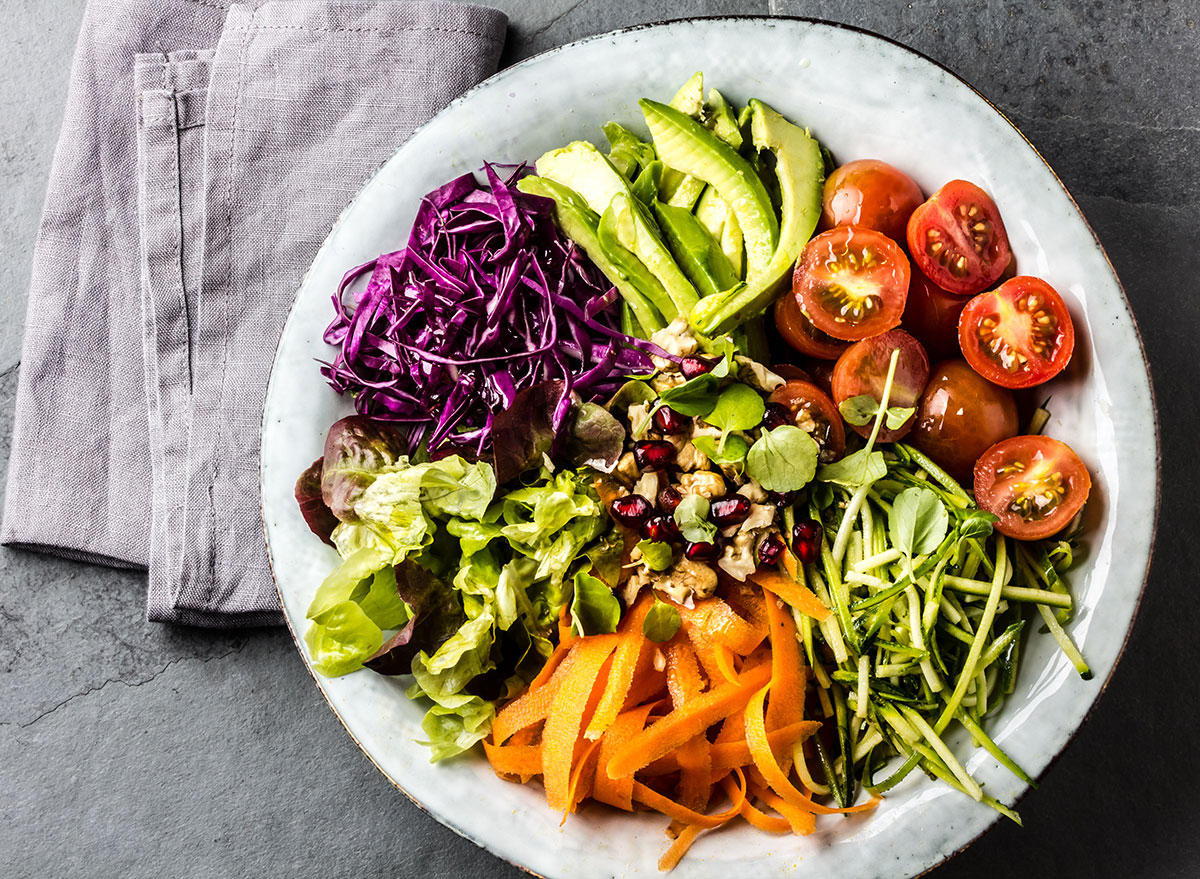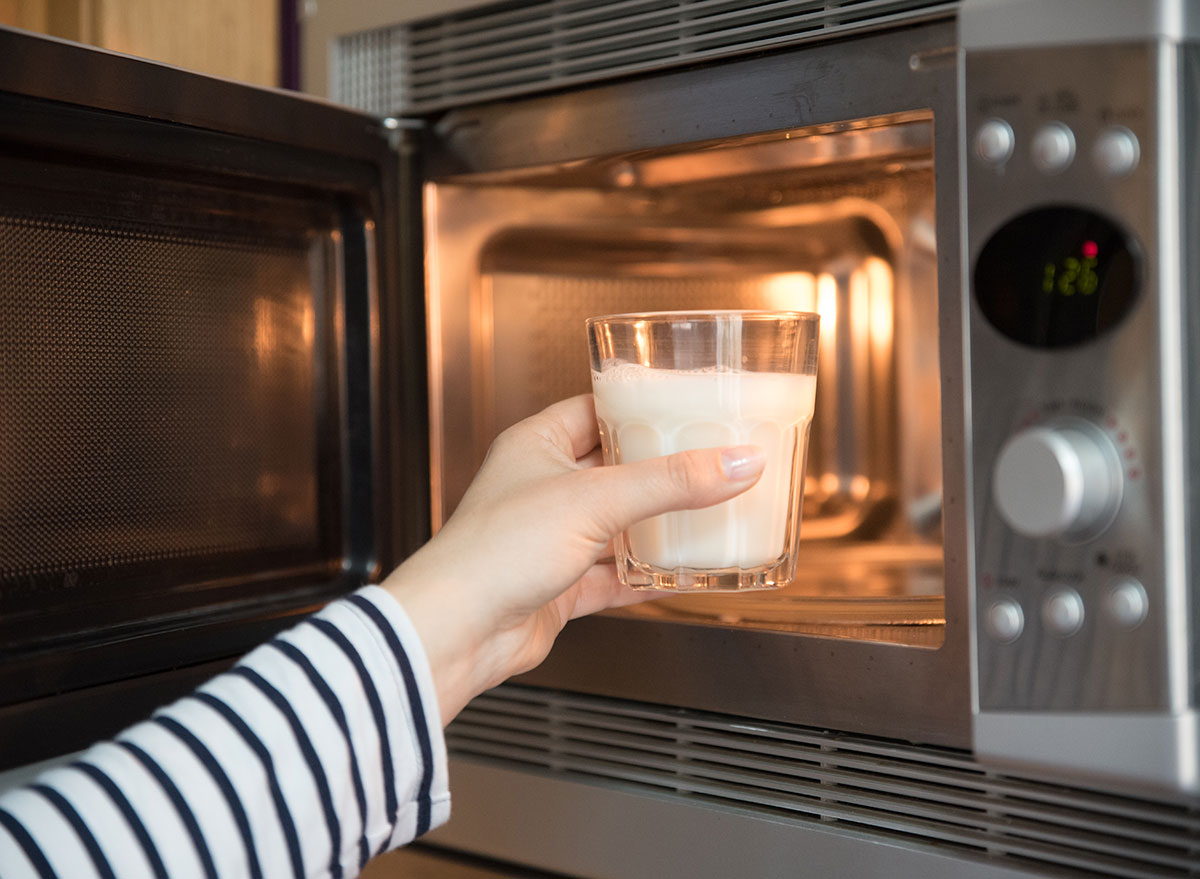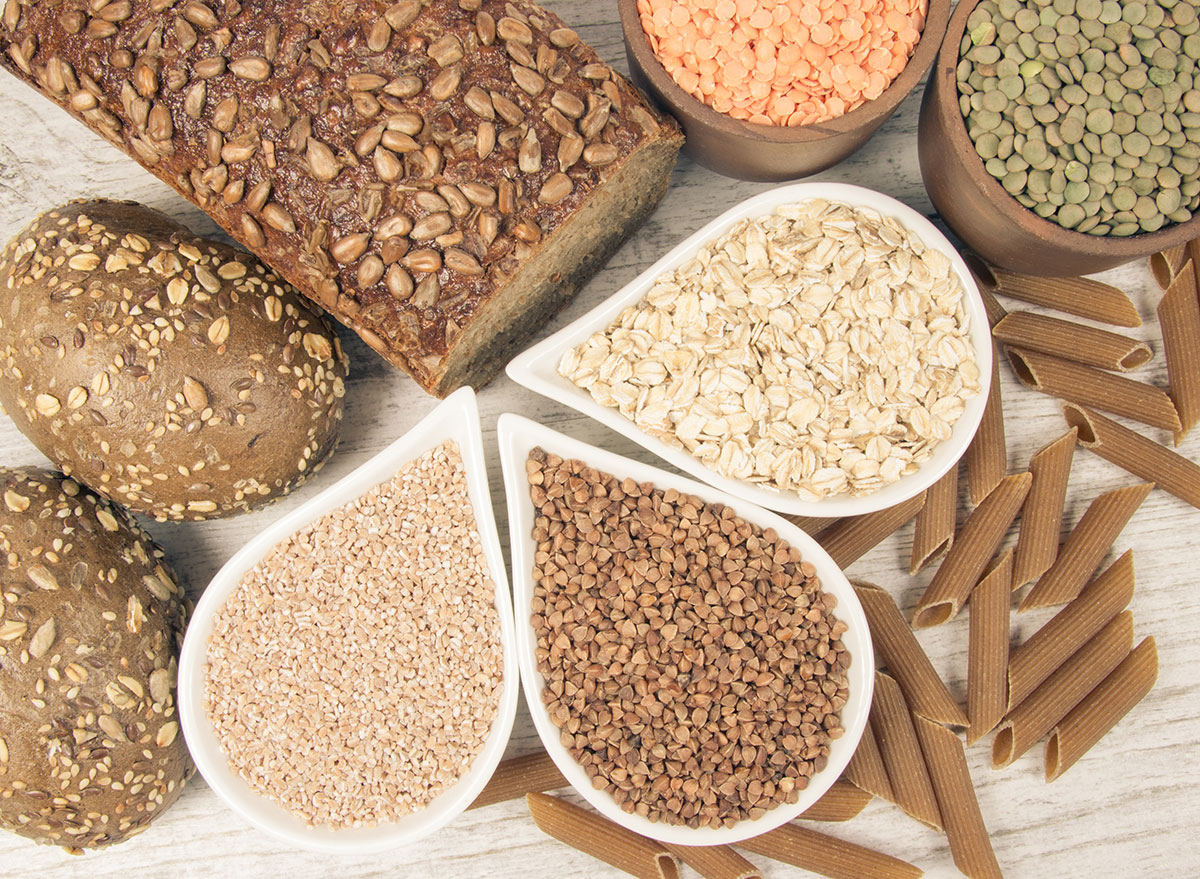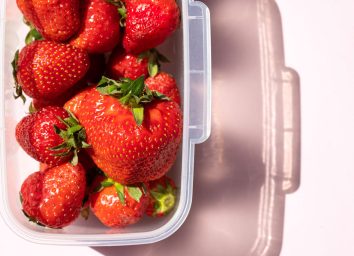The Diet Hacks That Will Reduce Stress Right Now, Says a Doctor

There really is nothing worse than constantly feeling stressed. Especially if you're trying to focus on working toward any weight-loss goals, stress only ends up being more of a hindrance, as you simply aren't in the best headspace to be your healthiest self. And that constant state of stress can have many (not-so-great) effects on you, overall.
"In order to understand the effect stress has on the body, we need to understand our stress-related hormones. The primary stress hormone is cortisol. The primary calming hormone is serotonin," explains Gretchen San Miguel, MD and Chief Medical Officer for Medi-Weightloss. "Stress increases cortisol, 'the stress hormone.' While this can cause you to have less of an appetite at first, long-term 'chronic' stress actually boosts your hunger."
So yes, that means you might end up eating more, and you're likely to eat the type of foods that aren't the healthiest options around.
"High levels of cortisol can increase your insulin levels, causing your blood sugar to drop which in turn makes us crave sugary high-fat foods. Chronically, this can also lead to weight gain, high blood pressure, diabetes, fatigue, and difficulty concentrating," says Dr. San Miguel. "When we are stressed, we tend to turn to comfort food, mostly because these foods, in turn, trigger counter-effective neuro-hormonal responses that have a direct calming effect on us , increasing serotonin."
But don't worry, not all hope is lost! That's where we come in. Thanks to Dr. San Miguel, she shared some of the best and easiest diet hacks you can adopt that will reduce stress, right now.
"Healthy lifestyle changes could ultimately ameliorate the impact that chronic stress can have on your body and lead to improved health, more energy, and less weight gain, thus improving your overall wellness," says Dr. San Miguel.
Check out the full breakdown of what you can do to reduce stress levels, and while you're making healthier habits, be sure to try out any of the 15 Underrated Weight Loss Tips That Actually Work.
Decrease your consumption of sugary foods.

"High sugar foods will lead you to crave more high sugar foods, creating an endless cycle," says Dr. San Miguel. "Consuming sugar is linked to higher cortisol levels in obese individuals."
But there is an upside, as Dr. San Miguel says munching on dark chocolate is something you should be doing!
"Studies show that consuming dark chocolate reduces cortisol response to a stress challenge," she says.
(If you need some help cutting back on sugar, here is the science-backed way to curb your sweet tooth in 14 days.)
Fill up on the right kinds of foods.

That means raw veggies.
"Mostly for the stress relief that comes from chewing them, eating raw vegetables can help release clenched jaw and decrease cortisol levels as well," says Dr. San Miguel. "Veggies are very low in calories and are filled with essential nutrients and dietary fiber."
You'll also want to be sure you fill up on foods that increase serotonin. This includes eggs, cheese, pineapple, tofu, salmon, turkey, nuts, and seeds, according to Dr. San Miguel.
Grab some milk.

When in doubt, turn to a warm glass of milk. Sipping on it can help you get to sleep faster, and adequate, proper sleep is majorly important when you're trying to reduce stress.
"[Go ahead and] warm [some] fat-free milk. Certain compounds in milk—specifically tryptophan and melatonin—may help you fall asleep," says Dr. San Miguel.
Skip the simple carbohydrates and load up on complex carbs.

"Simple carbs like sweets and sodas are digested quickly and lead to a spike in serotonin, making us feel quick stress relief, but it does not last long and before you know it you will be craving for more sweets to replicate the feeling. As you can imagine, this leads to continuous elevated blood sugars which in turn eventually will lead to elevated cortisol levels, weight gain, and eventually many chronic diseases," explains Dr. San Miguel. "Since complex carbs take longer to digest, they tend to be the ones that release a steadier supply of our feel-good hormone serotonin."
Essentially, you're going to want to choose whole-grain breads, pastas, and breakfast cereals, including old-fashioned oatmeal.
"Complex carbs can also help you feel balanced by stabilizing blood sugar levels, controlling hunger spikes," Dr. San Miguel adds.
Drink up.

Water, that is!
"Adequate hydration, sleep, and exercise are also important to control hormones and stress levels," Dr. San Miguel says. "Dehydration increases cortisol. I tell my patients to drink half their body weight in ounces of water per day."
Along with getting your water fix, you'll want to make sure you "get enough quality sleep, [as] timing, length, and quality of sleep all influence cortisol," and "exercise consistently, but not too much," according to Dr. San Miguel.
"In general, most adults should aim for at least 30 minutes of moderate physical activity every day and two strength-training sessions per week. Mild or moderate exercise at 40–60% of maximum effort does not increase cortisol and can actually help decrease cortisol," she says.








